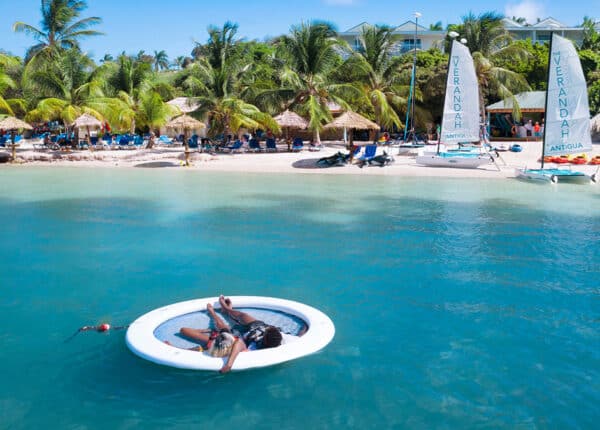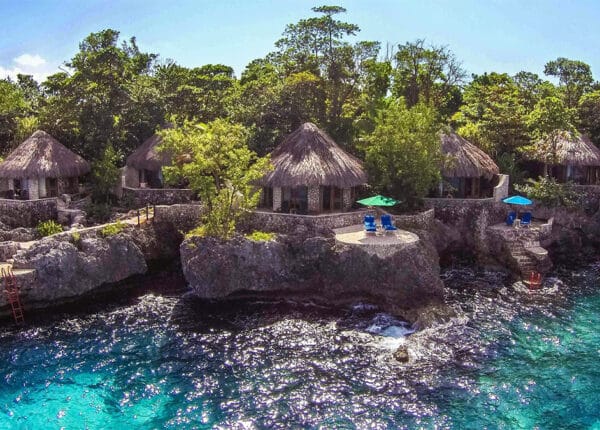By Paige Reese
Op-Ed Contributor
Blood, sweat, and tears undoubtedly contributed to the enactment of Jamaica’s Plea Negotiations and Agreements Act in 2010.
Though this appears to have been a necessary step toward resolving Jamaica’s clogged court system, debate rages about whether or not the legislation is ineffective.
Serving as a model for the Jamaican plea bargaining system, the United States’ system of plea bargaining helps fight crime by allowing lesser offenders the opportunity to negotiate a reduced sentence with prosecutors by trading information that may lead to the prosecution of large-scale criminal organizations. Furthermore, plea bargaining reduces resource strains on both the court system and government agents.
In a recent article published by the Jamaica Gleaner, the Director of Public Prosecutions, Paula Llewellyn, addressed her serious concerns with the molasses-speed implementation of the 2010 plea bargaining legislation.
Though the legislation was initially modeled after the American system, the practice and implementation of the plea bargaining system in Jamaica seems to be quite different.
In the United States, it is common practice for both the defense counsel and prosecution to discuss a sentence when someone pleads guilty to an offense. Great deference is usually allocated to a prosecutor’s sentencing recommendation to the court. In addition, sentencing guidelines provide ceiling and floor sentencing ranges that cannot be lowered or raised.
In Jamaica, however, the lack of definitive ranges imposes an air of uncertainty on sentencing, allowing for a pin-the-tail-on-the-donkey style judicial system. Jamaica has traditionally followed the decision in R v. Turner, 2 QB 321 (1970), deciding that a judge could not offer to impose one particular sentence in response to a guilty plea and a more severe sentence in response to a not guilty plea.
In April 2012, Llewellyn told the Gleaner that only about 10 pleas had gone before the court since the enactment of the legislation in 2010. Furthermore, the Jamaica Observer reports that Jamaican crime rates have skyrocketed, with 643 reported murders through the end of July compared to 630 at the same time in 2011.
Is Jamaica’s new plea bargaining system fatally flawed? Do Jamaican prosecutors choose to refrain from entering into plea bargaining?
Perhaps the problem lies not within the enacted legislation but within the use and implementation of the Negotiations and Agreements Act.
The initial importation of the American plea bargaining system into Jamaica was never going to be seamless. Jamaican judges value their discretion, and some view American mandatory sentencing guidelines as constrictive and unwavering.
However, nearly three years after the legislation’s adoption, it is time for Jamaicans to embrace the benefit that plea bargaining provides in not only clearing court backlog but also in streamlining Jamaica’s criminal justice system.
An operational and effective plea bargaining system does not seem to be Jamaica’s sole route to resolve deeply rooted problems with its criminal justice system. In a speech given at the University of the West Indies, “Intake Prosecutors and the Speedy Trial Rules: Proposals to Revise Jamaica’s Criminal Justice System,” Professor David Rowe from the University of Miami School of Law called for a reformed criminal justice system in Jamaica.
Rowe recognized Jamaica’s criminal case backlog and advocated for a speedy trial rule consistent with that of Florida, or 90 days for misdemeanors and one-hundred 75 days for felonies. Furthermore, Professor Rowe postulated the positive impacts a functioning plea bargaining system would have on increased efficiency in Jamaican courts.
Though Jamaica’s enactment of plea bargaining legislation that attempts to propel the country’s criminal justice system into the twenty-first century is commendable, the lack of implementation of the legislation has rendered it ineffective, at best.
Nearly three years later, Jamaica’s faltering plea bargaining system is in need of change.
If Jamaican attorneys and courts continue to oppose, rather than embrace, the country’s changing legal system, stagnation could cripple the island and leave its case backlog problem unsolved.
Jamaica can no longer cling by its fingertips to progress but instead must ride the wave.
Paige Reese is a JD candidate at the University of Miami School of Law.
Note: the opinions expressed in Caribbean Journal Op-Eds are those of the author and do not necessarily reflect the views of the Caribbean Journal.







